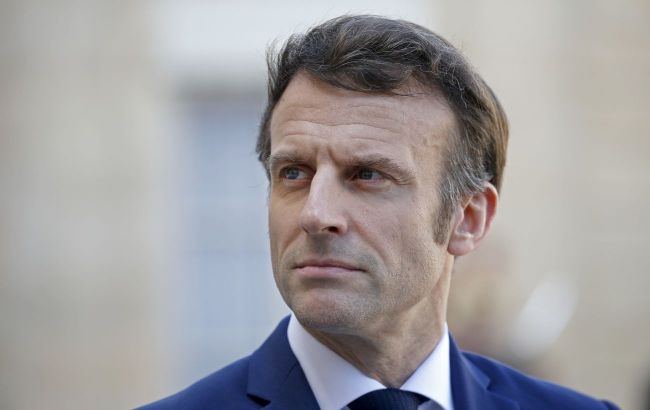Macron convenes French parliament party leaders to discuss war in Ukraine
 President of France Emmanuel Macron (Photo: Getty Images)
President of France Emmanuel Macron (Photo: Getty Images)
President of France Emmanuel Macron wants to discuss the war in Ukraine with all French political forces in parliament, according to the Élysée Palace.
"The President will meet all party leaders with a group in parliament in the 'St. Denis meetings' format dedicated to the situation in Ukraine," the statement said.
The head of state met party leaders in the same format in October last year, a few days after Hamas attacks on civilians in Israel. Prime Minister Gabriel Attal will also participate in the meeting.
War in Ukraine and elections to the European Parliament
The day after Emmanuel Macron's statement, in which he did not rule out the possibility of sending troops to Ukraine, causing criticism from all opposition representatives, the Elysée Palace announced debates and a vote in parliament on the bilateral security agreement concluded with Ukraine in February. The date has not yet been set.
The presidential camp intends to make the war in Ukraine and attitudes toward Russia the theme of the upcoming European Parliament election campaign.
On Thursday, the head of the list elected by Emmanuel Macron, Valérie Hayer, defended the head of state's position.
"The security of Ukrainians is our concern. Therefore, no option should be ruled out. We are not going to tell Vladimir Putin that we are generally going to rule out the possibility of self-defense," Hayer said.
Criticism from opposition representatives
On Tuesday, in the National Assembly, Gabriel Attal harshly criticized Marine Le Pen on this issue.
"There is reason to wonder whether Vladimir Putin's troops are already in our country," said the Prime Minister, referring to the National Rally group.
What led to this
French President Emmanuel Macron did not rule out that NATO could deploy troops to assist Ukraine. The main problem, he said, was the lack of consensus on this issue.
A number of NATO countries have already opposed this idea, including Germany, Czechia, Bulgaria, Spain, and Italy.
At the same time, there are countries willing to consider such a possibility, such as Lithuania, Latvia, and Estonia.
Canada, also a NATO member, has stated that it is ready to send troops to Ukraine, but only to train Ukrainian defenders away from the front lines.

